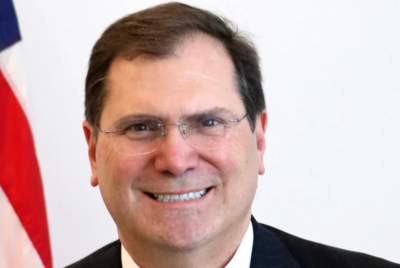Last Hunt for Nazi War Criminals: Poland Reopens Investigation into Auschwitz Genocide

The Institute of National Remembrance in Poland has vowed to complete the investigation into Second World War crimes committed at Auschwitz which started decades ago but shutdown during the Cold War.
In the years that followed the World War II the France, Great Britain, Russia and the United States, decided to prosecute the Nazi henchman responsible for crimes committed against civilians under Adolf Hitler's Nazi regime. While domestic and international courts were set up and various accused tried, many still managed to avoid arrest and prosecution.
Poland had the largest concentration of death camps, including Auschwitz, Treblinka and Belzec.
The institute, established near Auschwitz will now interview the last survivors of Nazi concentration camps, in order to obtain details of their everyday-life while in the camps, and has said it will also ask survivors to identify any possible war criminal that might still be alive.
Established between 1940 and 1945, the Auschwitz-Birkenauexpanded complex is the largest concentration camp ever established by the Nazis.
Auschwitz came to symbolise Hitler's crimes against humanity, and 1.5 million prisoners, mostly Jews from Europe, but also Poles, Roma, gays and others were murdered and gassed there, before it was liberated by Russian forces.
Figures estimates there are about 500 survivors of Auschwitz are still alive.
Up to 8,200 men and 200 women are thought to have worked at Auschwitz for the Nazis regime but after the war only 1,200 faced trial for the crimes committed during the war, so the news of a new investigation has been welcome.
"We cannot exclude the possibility that someone from the staff of Auswitch-Birkenau are still alive," "In which case, he would be responsible for crimes against the Polish nation." said Piotr Piatek, speaking for the Institute of National Remembrance.
Poland originally launched investigations into crimes at Auschwitz in the 1960s and 1970s, but closed in the 1980s without any indictments against the killers. Piatek said the investigation will finish the work started in the 80s which was abandoned following difficulties in tracking down witnesses and perpetrators which lived beyond the Iron Curtain.
"The battle to bring war crimes suspects to justice was definitely lost after the war, and not only with regard to Auschwitz."
"In total, not more than 15 per cent of the Auschwitz garrison faced trial before the tribunals of various countries. This percentage is, nevertheless, high in proportion to that for other concentration camps. The Cold War and the new political division of Europe did not favour a thorough search for justice or a reckoning for the memory of the victims of the German genocide," read a statement on the institute's web site.
Efraim Zuroff, a leading international Nazi hunter, welcomed the move but pointed out that Poland is the country with the most on-going investigations into Nazi crimes, but that these almost never result in prosecutions.
Poland's Institute of National Remembrance "excels in opening up investigations. They don't excel in prosecuting Nazi war criminals," Zuroff also said.
Meanwhile, the Institute for National Remembrance says it has already started questioning witnesses and maintains the move is aimed at "finding and, if needed, detaining the perpetrators."
The last person to be prosecuted for Nazi crimes is Henryk Mania who was sentenced to eight years in prison in 2001 for taking parts in acts of genocide at the death camp of Chelmno.
© Copyright IBTimes 2025. All rights reserved.





















